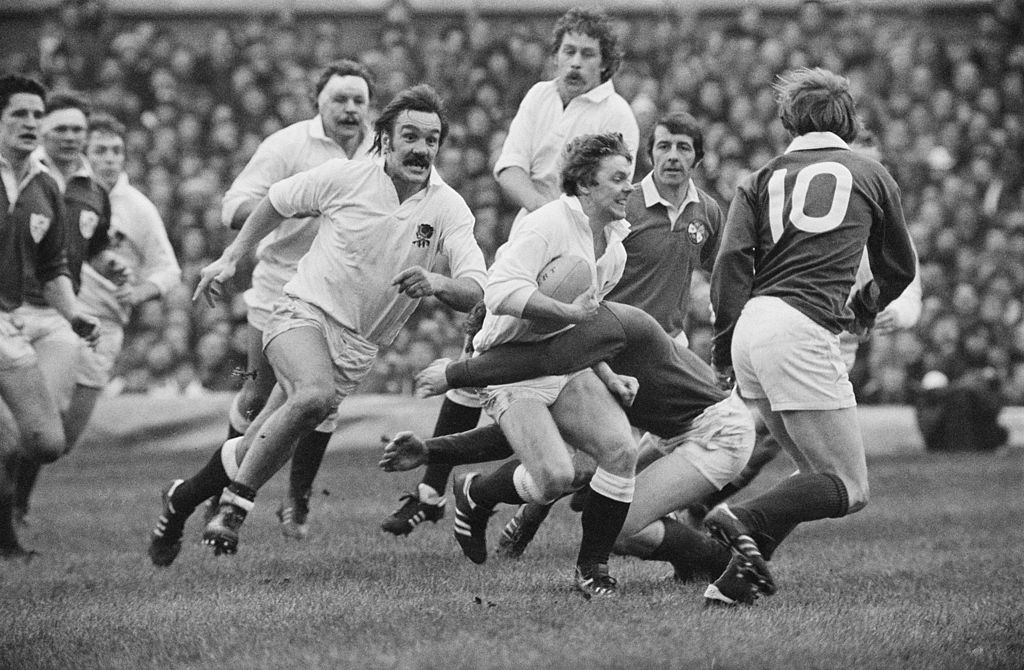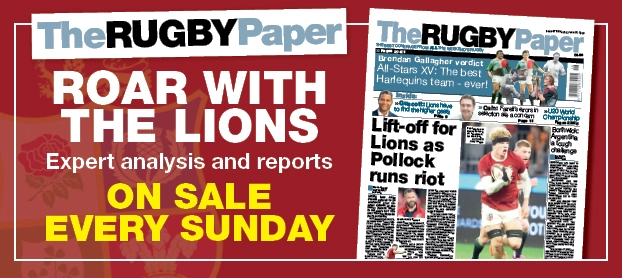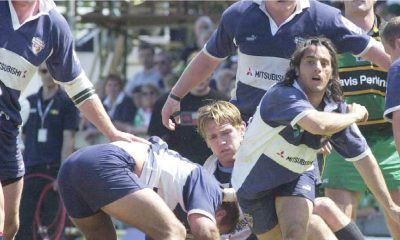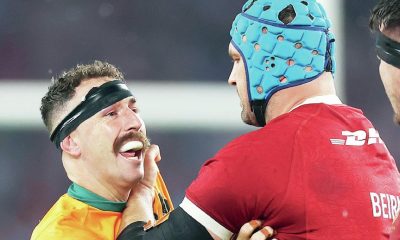
The rugby world has been indulging in a little naval- gazing these last couple of fractious weeks what with inflammatory words from Eddie Jones ahead of England‘s match with France and some pretty bellicose stuff from Jones and Lewis Ludlam before the Calcutta Cup game.
Yes it grated a little and was probably unnecessary, but let’s not lose a sense of proportion, it was all pretty mild compared with days gone past. The build up to the Grand Slam match in 1990 was positively poisonous, somehow getting mixed up with Margaret Thatcher’s poll tax which was to be trialled in Scotland, and before that came England’s clash with Wales in 1980, exactly 40 years ago today.
Anybody who lived through the latter – known primarily for Paul Ringer’s rather harsh sending off – will probably take a much more sanguine view of the current outbursts.
The battle of Twickenham in 1980 – seven England players formed an orderly queue for stitching after the game – was a particularly interesting case study because the enmity would appear to have been mainly rugby driven with socio and political factors only reinforcing the basic Anglo/Welsh hatred that built up among fans and media.
To set the scene a little. Wales had been dishing out some heavy-duty stick to England for the best part of two decades and been absolutely rampant in the 70s when England could reflect on just win, in 1974, against the old enemy.
During that decade Wales had swept to three Grand Slams in glorious style, something which had proved beyond England since 1957, and, let’s be honest, the Welsh fans and media were never overly modest and magnanimous in victory.
It hurt like hell for English rugby tragics and the frustrating thing was that throughout this period England had some world beating players who could look back on Test wins in South Africa and New Zealand and who contributed well to successful Lions tours. But could they beat the bloody Welsh!
Then suddenly, belatedly, the tide turned a little. The North gloriously defeated the All Blacks and the England selectors finally got their act together under Budge Rodgers and assembled all the best England players of their generation in the same team, in their correct positions, a revolutionary idea for England.
First came a fine win over Ireland and a command performance against France in Paris where they not only won the match but the fight as well.
Wales had also beaten France in fine style, four tries to one, and were on a mission having been denied a Grand Slam in 1979 in Paris where they lost by one point. They had noted how England didn’t take a backward step in Paris and knew they had to front up similarly at Twick- enham. With Lions places to South Africa also on the line, something had to give.
As Dusty Hare who was to kick England’s winning penalty, recalls: “The game was on the front and back pages all week in the build-up, I’ve never really understood why, it seemed to come from nowhere. Wales had only played one match, it wasn’t as if it was actually the Grand Slam decider but it got built up like that and built its own momentum.”
Steve Smith has similar recollections: “The game was built up to such an extent that we almost expected Clint Eastwood to walk out of the sunrise with his guns slung low. Running out was very different from the normal high-spirited crowd, there was a feeling of hatred from what seemed like a seething mass of people. There was no real cheering, the whole experience chilled the blood.”
Roger Uttley had his face re-arranged by Geoff Wheel and wondered what he was going to say to his children when he got back home on Sunday morning while Peter Wheeler recalls another incident: “I was lying trapped at the bottom of a ruck and a Welsh forward was coming towards me. He was a man I had toured with several times and although I did not expect him to walk around me I was surprised when he looked down at me and stamped on my head.”
All of the England players are adamant, however, that Ringer, a regular at Leicester Tigers between 1975-77, didn’t deserve to be sent off for the kind of marginal late tackle on John Horton that was absolutely bog standard in the era and would probably only garner a yellow card even now. Horton was uninjured but Irish referee Dennis Burnett had just moments before issued a final general warning and felt his authority couldn’t be tested anymore.
As Wheeler, who comforted Ringer in the bar afterwards with Derek Quinnell, recalls: “It was a brave action on Burnett’s part but most of the players were aware that having made the gesture it was unlikely that he would do it again so the dismissal had little effect on an already aggressive game.”
Aside from the violence and verbals there was occasional outbreaks of rugby to watch. Wales, having been reduced to 14 men, responded as many sides do with a super-charged effort and with Twickenham a boggy wasteland, being one player short was not such a handicap. The match never moved beyond a battle of the two packs and Wales simply augmented their seven-man pack with Steve Fenwick for set-pieces.
Terry Holmes and Gareth Davies were superb at half-back and with Jeff Squire and Elgin Rees scoring tries they led England 8-6 with two minutes remaining. It would have been more but Wales didn’t land one of their seven kicks at goal. At which point Burnett signalled a late England penalty, on the wrong side of the pitch for a right footed around the corner kicker like Hare.
The Leicester full-back did have one advantage, he did most kicking practice aiming at a telegraph pole on the edge of a ploughed field at the family farm. He was much more attuned to the conditions underfoot and coolly slotted the kick to thunderous applause, the single most important moment of England’s ultimately successful Grand Slam campaign.
































You must be logged in to post a comment Login